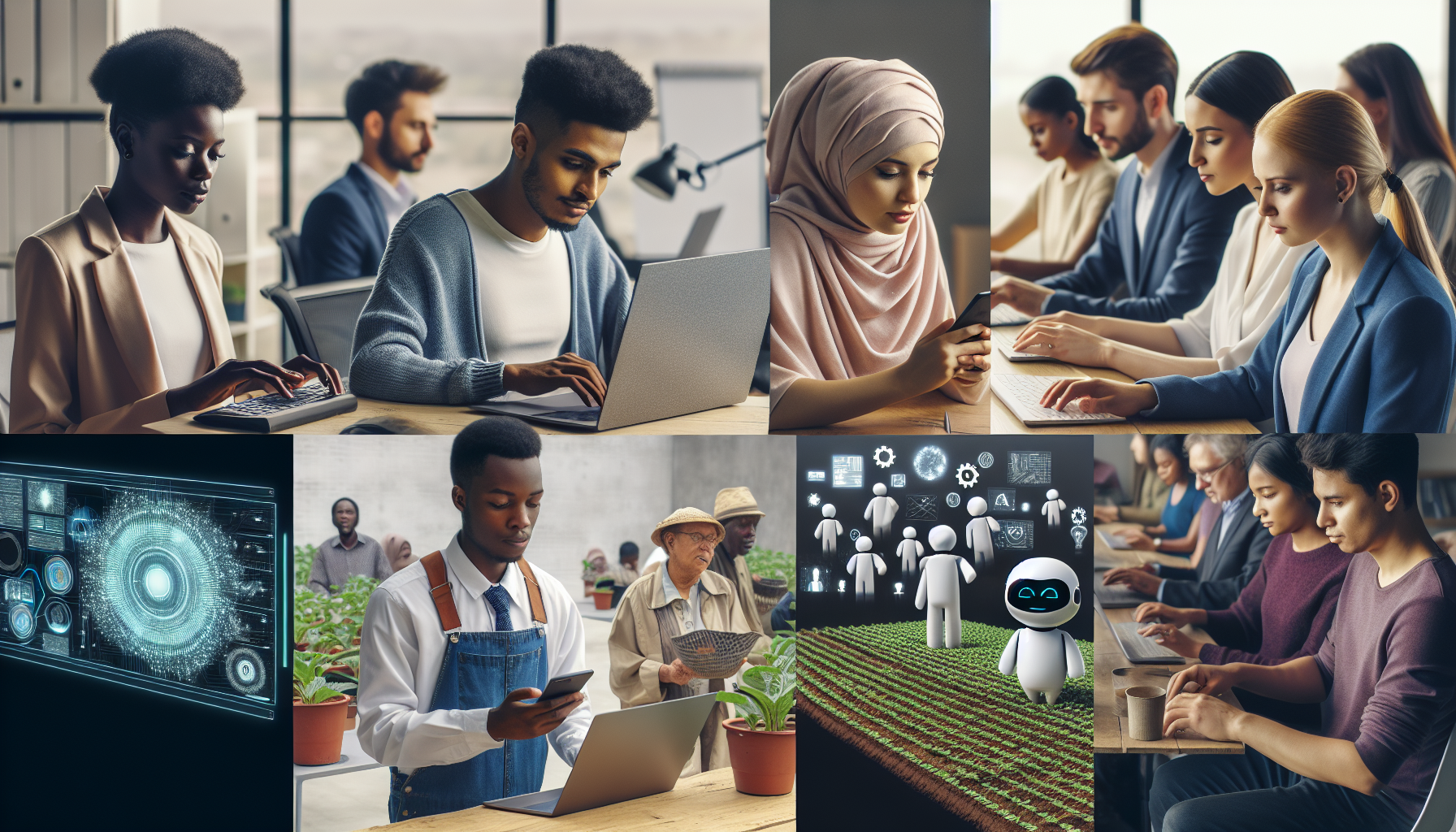
In recent years, Nigeria has experienced a surge in technological advancements, leading to a growing demand for tech-savvy individuals and innovative solutions. As the country's entrepreneurial landscape continues to evolve, startups are increasingly turning to virtual assistants and AI technology to enhance their operational efficiency and competitive edge. This shift towards automation and artificial intelligence not only presents new opportunities for tech job seekers but also poses unique challenges that require a strategic approach to navigate successfully.
Understanding AI and Its Impact on Employment
AI involves the development of computer systems that can perform tasks that typically require human intelligence, such as learning, reasoning, and problem-solving. In the context of employment, AI can automate routine tasks, enhance decision-making processes, and create new job opportunities. However, it can also lead to job displacement, particularly in roles that involve repetitive or manual tasks.
Opportunities for tech job seekers in Nigeria
With the rapid digitization of various industries in Nigeria, there is a rising demand for skilled professionals in areas such as software development, data analysis, cybersecurity, and artificial intelligence. Job seekers with a background in technology have a plethora of opportunities to explore within the country's burgeoning startup ecosystem. Nigerian startups are actively seeking talent to drive their digital transformation initiatives and are willing to offer competitive salaries and benefits to attract top-tier candidates.
AI is creating new job opportunities in the tech and AI sectors. As Nigerian companies adopt AI technologies, there is an increasing demand for skilled professionals such as data scientists, AI engineers, and machine learning specialists. These roles involve developing, implementing, and maintaining AI systems.
Example: Nigerian startups like Kudi and LifeBank are leveraging AI to provide innovative solutions, leading to the creation of high-skilled tech jobs.
2. Improving Efficiency and Productivity
AI enhances efficiency and productivity across various industries by automating routine tasks and optimizing operations. This allows businesses to allocate resources more effectively and focus on strategic initiatives, potentially leading to job growth in higher-value roles.
Example: Nigerian agricultural companies use AI-powered drones and sensors to monitor crop health and optimize irrigation, increasing productivity and creating jobs in tech-enabled agriculture.
3. Enhancing Customer Service
AI-driven chatbots and virtual assistants are revolutionizing customer service by providing instant support and handling routine inquiries. This allows human employees to focus on more complex and value-added tasks, improving overall service quality and job satisfaction.
Example: Nigerian banks like Guaranty Trust Bank use AI-powered chatbots to assist customers with banking services, enhancing the customer experience and creating jobs in AI development and management.
4. Enabling Innovation and Entrepreneurship
AI fosters innovation and entrepreneurship by providing tools and insights that enable businesses to develop new products and services. Nigerian entrepreneurs are leveraging AI to address local challenges, leading to the creation of startups and new job opportunities.
Example: Startups like RelianceHMO use AI to provide affordable health insurance solutions, driving innovation in the healthcare sector and creating jobs.
Challenges and Potential Job Displacement
1. Automation of Routine Tasks
AI can automate routine and repetitive tasks, potentially leading to job displacement in roles such as data entry, manufacturing, and administrative support. Workers in these positions may need to reskill or transition to new roles to remain employable.
2. Skills Gap and Workforce Readiness
The adoption of AI technologies requires a workforce with specialized skills in AI, data science, and machine learning. There is a risk of a skills gap if the Nigerian education system and workforce training programs do not keep pace with the demand for these skills.
3. Economic Inequality
The benefits of AI may not be evenly distributed, potentially exacerbating economic inequality. Ensuring that all segments of society have access to education, training, and opportunities in the AI-driven economy is crucial for inclusive growth.
Strategies for Adapting to AI's Impact on Jobs
1. Investing in Education and Training
Investing in education and training programs is essential to equip the Nigerian workforce with the skills needed for AI-related jobs. This includes integrating AI and data science into school curricula, offering vocational training, and providing continuous learning opportunities for professionals.
Example: Initiatives like Data Science Nigeria offer training and mentorship programs to develop AI and data science talent, bridging the skills gap and preparing the workforce for AI-driven jobs.
2. Promoting Public-Private Partnerships
Collaboration between the government, private sector, and educational institutions can drive the development and adoption of AI technologies. Public-private partnerships can support research, innovation, and the creation of policies that foster a conducive environment for AI-driven growth.
Example: The Nigerian government’s partnership with IBM to establish AI and data science hubs across the country is an example of how such collaborations can promote skills development and innovation.
3. Fostering a Culture of Lifelong Learning
Encouraging a culture of lifelong learning is crucial to help workers adapt to the evolving job market. Providing access to online courses, workshops, and certification programs can empower individuals to continuously upgrade their skills and stay relevant in the AI-driven economy.
Example: Platforms like Coursera and Udacity offer online courses in AI and machine learning, enabling Nigerians to learn new skills at their own pace and enhance their employability.
4. Ensuring Inclusive Growth
Policymakers and businesses must ensure that the benefits of AI are accessible to all, particularly marginalized communities. Implementing policies that promote equitable access to education, training, and job opportunities can help mitigate the risk of economic inequality.
Example: Initiatives that provide scholarships and training programs for underrepresented groups in tech can help ensure that the AI-driven economy benefits everyone.
Conclusion
AI presents both opportunities and challenges for the Nigerian job market. While it has the potential to create high-skilled jobs and drive innovation, it also poses risks of job displacement and economic inequality. By investing in education and training, promoting public-private partnerships, fostering a culture of lifelong learning, and ensuring inclusive growth, Nigeria can harness the power of AI to build a resilient and prosperous future.
Espiknow AI is committed to supporting these efforts by providing cutting-edge AI solutions and promoting education and innovation in Nigeria. Explore how Espiknow AI can help you navigate the AI-driven future. Visit Espiknow AI today to learn more.
